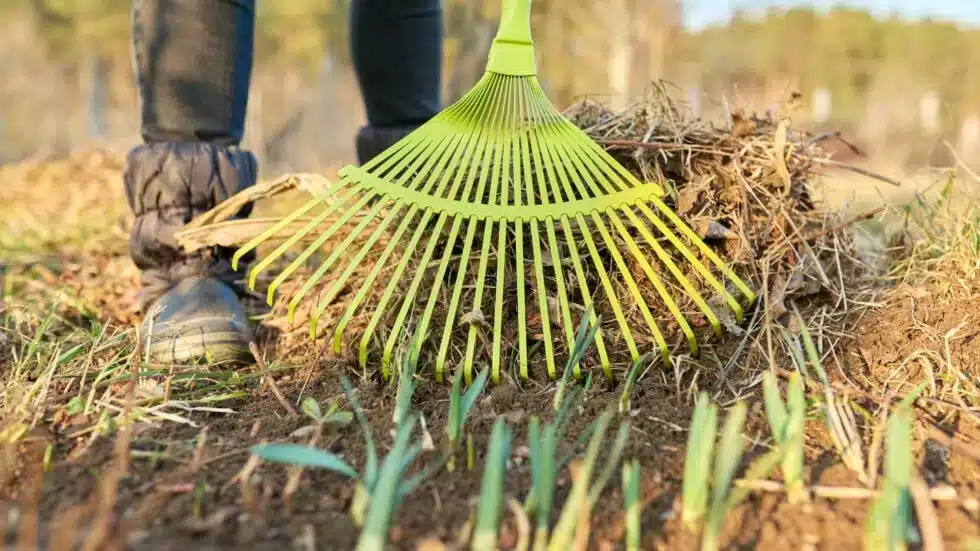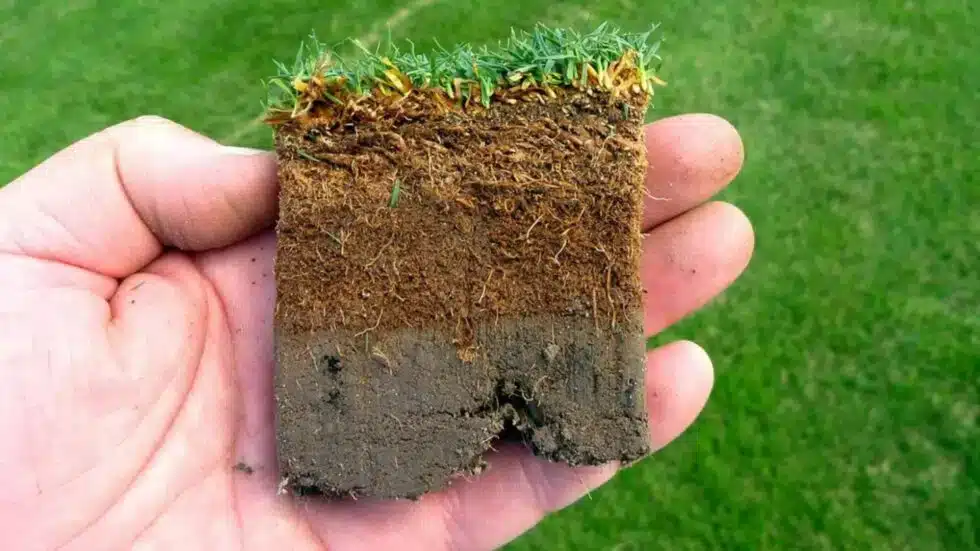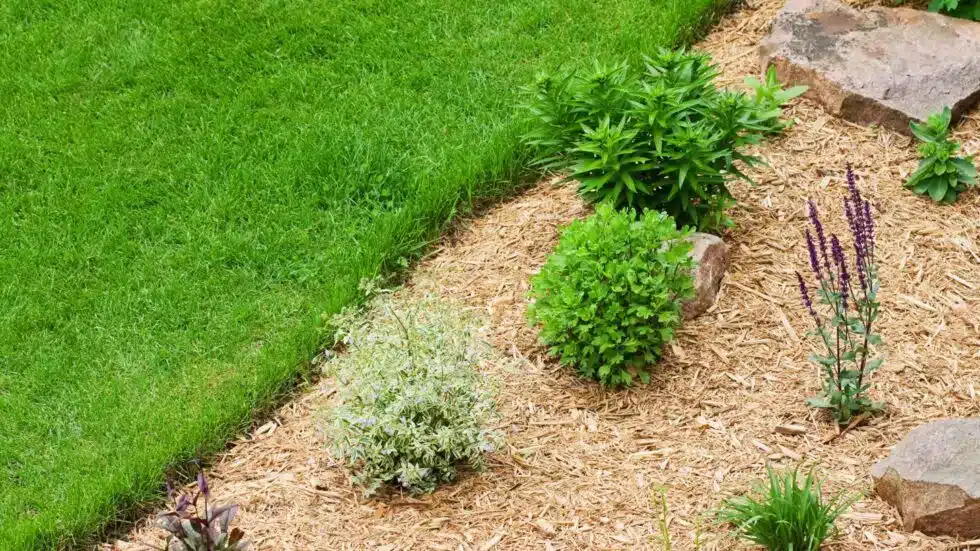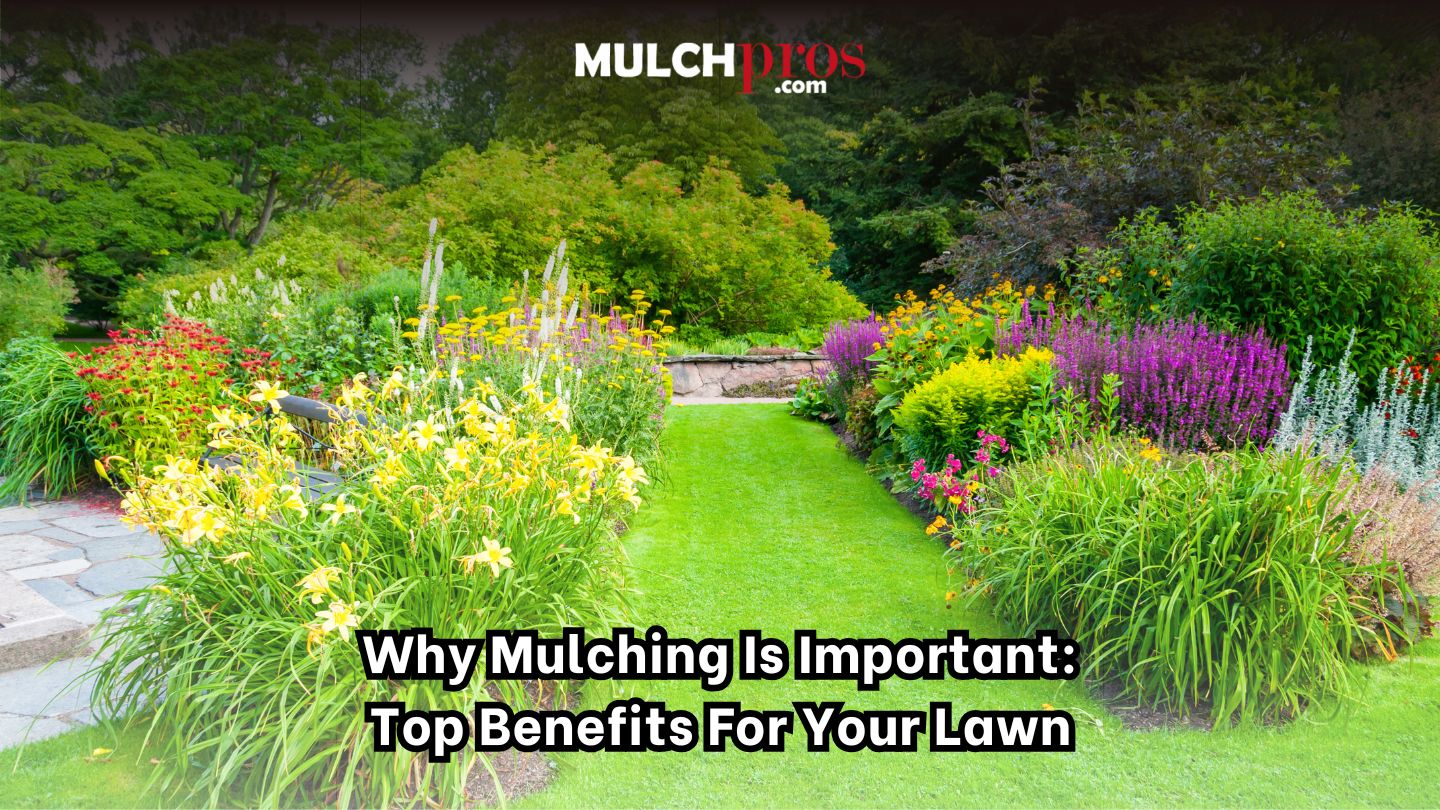Mulching is more than just a gardening task—it’s an essential practice for maintaining a healthy, thriving lawn. Whether you’re looking to improve soil health, retain moisture, or reduce weed growth, mulching offers a range of benefits that can transform your outdoor space. In this blog, we’ll explore why mulching is so important and how it can enhance the health and appearance of your lawn. Ready to give your yard the care it deserves? Let’s dive in!
Key Takeaways
- Mulching enhances lawn health by retaining moisture, regulating temperature, and suppressing weeds while utilizing organic materials like grass clippings.
- Grass clippings act as a natural fertilizer, recycling nutrients back into the soil and reducing the need for synthetic fertilizers, thus saving on lawn care costs.
- Implementing proper mulching techniques not only improves soil health and plant resilience but also provides significant environmental benefits by minimizing yard waste and promoting sustainability.
Understanding Mulch
Mulch is an essential element for enhancing the health of your lawn, as it contributes organic matter to the soil and helps retain moisture. Commonly used in eco-friendly gardening practices, mulching involves applying a layer of organic material, such as grass clippings or leaves, on top of the soil surface. The key functions served by this practice are retaining water within the soil, maintaining stable temperatures around plants, and hindering weed growth—all crucial aspects for any avid gardener.
Utilizing naturally decomposable materials like wood chips, pine bark, straw leaves, and grass clippings not only benefits your yard but also aids environmental conservation. These types of mulches help promote robust plant life by enriching lawn quality with their nutrient-releasing properties during decomposition.
By repurposing grass clippings as mulch rather than discarding them as waste, you contribute to a cycle that enhances garden vitality. A protective barrier formed from these cuttings safeguards against harsh weather conditions while preserving precious moisture levels in the ground and deterring unwanted weeds from sprouting up. Embarking upon mulching can be an uncomplicated yet highly efficient strategy to cultivate a verdant and thriving lawn without relying heavily on watering systems or synthetic fertilizers.
Nutrient Recycling with Grass Clippings
Mulching grass clippings can significantly contribute to nutrient recycling on your lawn. These clippings are an excellent source of vital nutrients such as nitrogen, phosphorus, and potassium that play a crucial role in promoting healthy plant development. By mulching your grass, you may deliver up to one pound of nitrogen for every thousand square feet of lawn space, thereby diminishing the necessity for supplemental nitrogen-based fertilizers.
By employing a mulching mower that finely chops the grass clippings, they are able to decompose swiftly and effectively enrich the soil. This not only bolsters soil quality but also fosters an abundant microbial ecosystem, which is indispensable for maintaining a verdant lawn. Consequently, when these fine cuttings from mulched grass return those valuable nutrients back into the turfgrass system itself, it reduces reliance on artificial fertilizing agents.
The economic advantages associated with mulching your yard’s organic matter extend well beyond immediate savings. Cutting down on required chemical supplements translates directly into cost reduction regarding overall garden upkeep expenditures. As decomposing natural elements found within these mowed remnants continually elevate land fertility over time, integrating this environmentally friendly technique proves both financially prudent and conducive to cultivating fertile grounds.
Read more : What To Do With Old Mulch: 6 Ways to Recycle
Moisture Retention and Soil Health
Mulching offers the key advantage of helping to retain soil moisture, which is essential for preventing water from evaporating and keeping the ground moist for extended periods. This moisture conservation becomes especially vital in conditions of hot weather when preserving soil hydration poses a significant challenge. Mulch serves as an insulating barrier over the soil, conserving water content and shielding against erosion while simultaneously enhancing the physical structure of the soil and incorporating beneficial organic matter.
Mulch plays a crucial role in nurturing a more conducive environment for plant roots by promoting increased microbial activity within the soil as it decomposes. Through this decomposition process, mulch transforms into natural fertilizers rich in nutrients that significantly improve lawn health by fostering a self-sustaining ecosystem where plants flourish with reduced dependence on external additives.
Utilizing mulch can lead to considerable savings over time regarding water consumption due to its ability to sustain adequate moisture levels. The less frequent need for watering not only translates into conserved resources but also equates to saving effort and expense. As such, during each growing season’s duration, integrating mulching practices stands out as both an economical option and an environmentally friendly strategy for achieving a verdant lawn area.
Read more : The Best Ways: How to Use Mulch to Improve Your Garden Soil Health
Weed Suppression

Incorporating mulching into your lawn care regimen offers the significant benefit of weed suppression. The mulch serves as a blockade, hindering the germination of weed seeds and thus diminishing the potential for weeds to establish themselves within your lawn. Utilizing organic materials like grass clippings and leaves as mulch can thwart annual weed growth by obstructing sunlight and helping maintain consistent soil temperatures—these actions render mulch an effective ally in preserving a pristine lawn.
The success rate at which weeds are suppressed hinges on how thickly the mulch is applied. While small-seeded broadleaf weeds necessitate thinner layers of mulch, varieties with larger seeds may require a more substantial layer for optimal results. Through its role in curbing weed proliferation, employing a strategy of proper mulching can lead to reductions in both time expenditure and monetary costs related to managing unwanted plant invaders.
Ultimately, practicing regular mulching delivers dual advantages: it cultivates healthier turf while simultaneously curtailing rogue vegetation growth – all without relying heavily on chemical herbicides or labor-intensive weeding methods. A meticulously maintained landscape featuring well-mulched lawns not only thrives but also retains visual appeal, absent any disfiguring infestation by pesky weeds.
Temperature Regulation
Mulch is essential in maintaining a consistent soil temperature and safeguarding plant root systems. It keeps the soil beneath it cooler during the sweltering months of summer, which contributes positively to the health of roots. Mulch acts as a protective layer that prevents excessive heat from reaching the soil, thereby ensuring that your plants’ sensitive root systems are well-protected.
During colder winter times, mulch provides thermal insulation for the soil, averting freeze conditions and offering protection against harsh cold for plant roots. This insulating effect preserves an even temperature within the soil, guarding against rapid shifts in temperature that may otherwise place stress on plants. By moderating variations in soil temperatures with its buffering capability, mulch fosters an environment conducive to robust plant development.
Ensuring consistency in soil temperatures is vital for nurturing healthy roots and contributing to overall lawn vitality. By aiding your lawn’s capacity to withstand seasonal changes in temperature effectively by utilizing mulch, you support year-round vigorous growth and resilience within your garden ecosystem.
Read more : Embrace Winter: The Shielding Role of Mulch in Your Garden
Reducing Thatch Buildup

Some individuals worry that leaving behind grass clippings after mowing could lead to an accumulation of thatch. Yet, this concern is unfounded because lawn clippings are mostly water and break down swiftly, helping to avert the formation of thatch. Leaving these clippings on your lawn does not result in increased thatch since they decompose at a rapid pace.
Consistently cutting your grass with a standard mower and incorporating mulching into the process can effectively stop these clippings from exacerbating any current issues with thatch. Utilizing a mulching mower enhances the breakdown process of the grass pieces, enabling them to decompose more quickly without contributing additional layers to existing thatch. Adopting this strategy promotes overall lawn health while eliminating unnecessary efforts dedicated to removing extra thatch.
It’s crucial to acknowledge situations where wetness causes clipped grass portions to bunch up together. If unaddressed, such groupings might temporarily trouble your yard by smothering growing grass beneath them. By simply dispersing these lumps when they occur ensures proper decomposition—this proactive measure aids in preventing excessive buildup of dead organic matter within your turfgrass system for continued lushness and well-being.
Environmental Benefits

Incorporating mulching into your lawn maintenance routine offers a plethora of ecological benefits, positioning it as an eco-conscious approach to yard care. A prominent environmental benefit of this practice is the minimized contribution of yard waste to landfills. Utilizing grass clippings and various organic materials for mulch significantly lowers the amount of waste that reaches these disposal sites, aiding in the pursuit of environmental sustainability.
By integrating mulching methods, you’re effectively nourishing garden soil with essential nutrients and fostering healthier ecosystems within your garden. This environmentally friendly technique not only enhances your own lawn but also contributes positively to wider efforts for sustainable living. Through mulching, organic matter finds new life in a regenerative cycle that bolsters soil health while diminishing reliance on synthetic fertilizers.
Together, when you choose to engage in mulching practices as part of conscientious lawn management tactics, you help foster an improved natural environment alongside achieving a lush and vibrant lawn. Embracing this method aligns seamlessly with principles central to sustainable gardening—and presents manifold advantages both for your personal outdoor space and our global ecosystem at large.
Cost and Time Efficiency
Mulching is beneficial not only for your lawn but also for your wallet. By reducing the need for fertilizers and yard maintenance, mulching can significantly lower your lawn care costs. Grass clippings act as a natural fertilizer, providing essential nutrients to the soil and reducing the need for synthetic fertilizers.
Mulching also reduces water usage by retaining soil moisture, lowering water bills, and making it a practical choice for hot and dry seasons.
In addition to cost savings, mulching also saves time. Mulching turns mulch clippings into fine particles that decompose quickly, eliminating the need for extensive cleanup after mowing. This allows you to spend more time enjoying your beautiful lawn and less time on maintenance tasks.
The many benefits of mulching make it a smart and efficient choice for any lawn care routine.
Wrapping Up
Mulching is a game-changer for any lawn care routine, offering benefits like nutrient recycling, moisture retention, weed control, and temperature regulation. By adopting mulching, you can create a thriving, healthy lawn while reducing time and maintenance costs. It’s a practical and eco-friendly solution that every homeowner should consider.
At Mulch Pros Landscape Supply, we’re dedicated to helping you achieve a lush, beautiful lawn with high-quality mulch in Milton. Whether you’re upgrading your lawn or starting fresh, we have everything you need to bring your vision to life, including brown mulch, black mulch, red mulch, hardwood mulch blend, and pine bark jumbo nugget mulch. Take the first step towards a healthier, greener lawn by incorporating mulching today—your lawn will thank you! For expert advice and quality products, contact us to get started.
Frequently Asked Questions
Do grass clippings contribute to thatch buildup?
Grass clippings do not contribute to thatch buildup, as they decompose quickly and are mostly water. Proper management of clippings can actually benefit your lawn rather than harm it.
When should I avoid mulching my lawn?
You should avoid mulching your lawn when the grass is wet, overgrown, or if there is a significant presence of weeds, as these factors can impede effective mulching and encourage weed proliferation.
How does mulching help with weed suppression?
By implementing mulching, you effectively stifle weed proliferation by obstructing light access and maintaining consistent soil temperature. This impedes the germination of weed seeds and curtails their growth.
Employing this straightforward method can substantially improve the well-being of your garden.
What are the environmental benefits of mulching?
Mulching significantly reduces yard waste in landfills while enriching soil health and promoting thriving garden ecosystems.
This practice enhances sustainability in lawn care and contributes to a healthier environment.
How can I ensure effective mulching practices?
To ensure effective mulching practices, keep your mower blades sharp and maintain the mower deck for optimal performance.
Additionally, mow regularly and apply grass clippings in thin layers to avoid matting and encourage proper decomposition.


